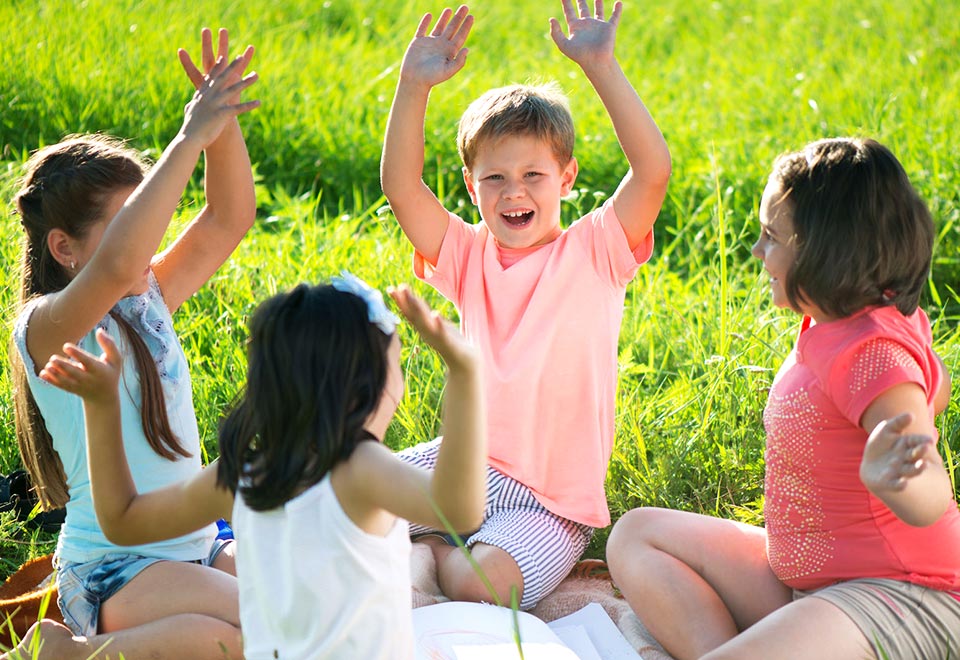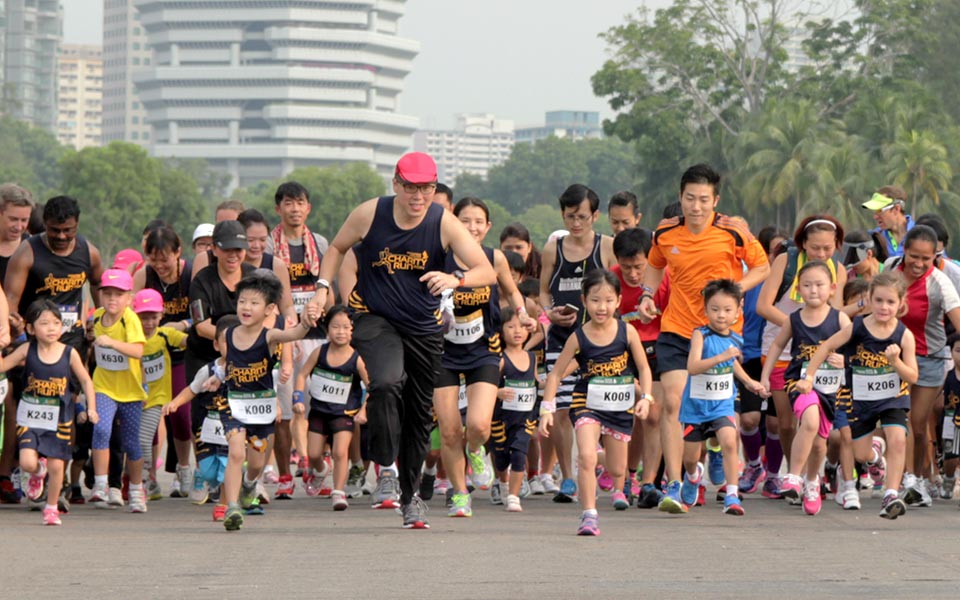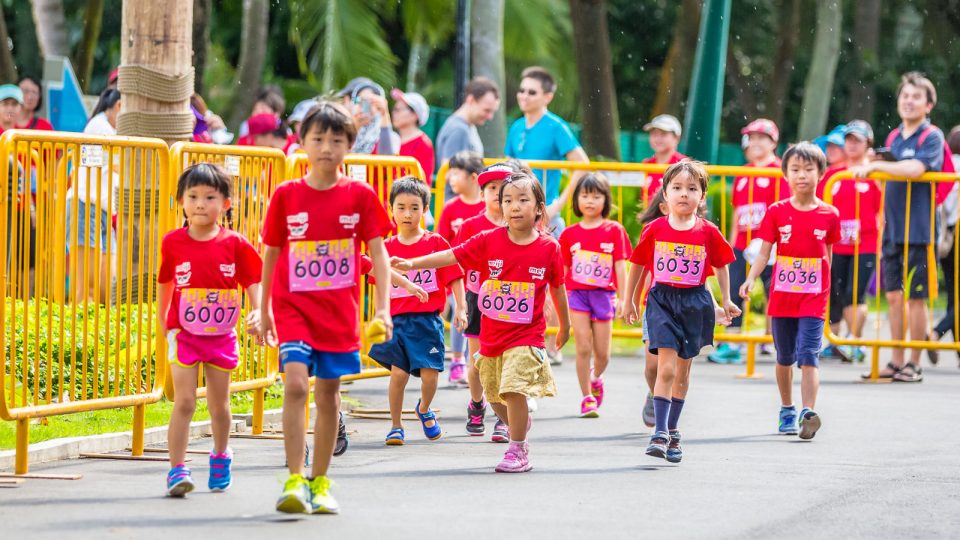Running has been an age-old activity for parents looking to escape from day-to-day work-related stress and family obligations. For many parents, running is a children-free event.
But did you know that allowing your children to run with you can offer a wide range of health and running benefits?
Today, we look at some of the key benefits of running with your children and leading factors to consider for a chilren running events before bringing them along for a run.
Children Running Leading Considerations: Age, Interest and Ability
Children are still physically and emotionally developing; because of this, they have different reasons for running than their adult counterparts. Toddlers eagerly sprint across the room to develop gross motor skills, and they also experience a psychological boost from the joy of the experience. This first run usually occurs between 18 to 24 months of age.
If your children continue to show a genuine interest in running as they grow up, consider enrolling them in a youth-running program or a child running event once they have reached age five or so.
Stick to programs advertising a flexible and relaxed atmosphere with the children running between 100 to 400 meters each session.
The goal at this age is to foster a love of running and sneak in some exercise. You can also play games that involve ample running such as tag.
Best Distances for Kid Runners
Whether your kid is 3 years old or 12, you should let your child set the pace. Set small running goals so your kid feels successful. The goals need not have to be running fast. You could be adding distance until 5km and experimenting with a new type of run or running at different locations.
Running together with your child will help you gauge your child’s ability and pace. You don’t have to run every day, and remember to hydrate before, during and after running.
Children Developmental Milestones
As a child’s interest and ability in running increases, parental encouragement to participate in running events can be a significant developmental boost. Modern psychological research emphasises the importance of playtime in child development.
According to research published in the Early Childhood Education Journal, preschoolers learn awareness of other people’s feelings and emotional self-regulation by playing.
An entirely new kind of therapy known as “play therapy” has formed from this idea, encouraging children to regulate emotions by playing with sand trays or dolls. Even when play does not occur in a formal setting, the activity still offers children an outlet to work through emotional issues, such as anxiety, frustration and other overwhelming mental experiences.
Play also creates a social structure for kids, helping them develop friendships and confidence through team play.
One study by Oppenheimer Funds found that 81 percent of women business executives played organised team sports when they were girls.

The Benefits of Running For Children
Studies have also shown that exercise has numerous health benefits for kids.
Exercise is a therapeutic activity known to reduce stress, boost creativity and improve attention span. This effect is more pronounced in children, showing steady improvement once regular exercise makes a part of the weekly schedule.
Structured running groups are beneficial for a child’s psychosocial development. An age-appropriate running schedule for kids is key to ensuring that they receive the benefits of exercise without being pushed too hard.
During their most formative years from the ages of five to eleven, the goal of running should be to develop a healthy lifestyle and general enjoyment in the activity. Competition should not be introduced until the children are in their early teens.
Children ages five and older can start running between a half-mile and two-mile runs, depending on individual motivation. Once they reach the age of six, a combination run or walk 5K race is suitable.
Organised running programs or children running events benefit children as they approach their teenage years. Look for shorter programs that last a few months at most. As children progress to this age, program structure and competition level can gradually increase.
Just like adults, a child’s running schedule should begin with a low intensity workload and gradually increase in distance, speed and frequency.
Young running participants in their early teens might increase a running challenge to a 10K or half-marathon run.
Despite the urban legend that kids will stunt their growth by running excessively, there is no scientific evidence to indicate that experienced young runners will hurt themselves by attempting a marathon.
Some experts believe that a children’s marathon has less limits than parents seem to think.
One elite running coach, Brad Hudson, practiced running 160 to 225 kilometers each week in high school, and he is of the opinion that as long as kids are enjoying themselves and the challenge, there is no reason to stop.
The stigma of having children run extreme distances is based on a societal misconception of running as a form of punishment.

In actuality, many athletic children feel that running is a healthy challenge for children. The key is to make certain that the child is choosing the intense running schedule, not the parent.
While physical burnout is unlikely, emotional burnout occurs more often in early runners. By giving your child the freedom to quit running if he or she prefers, you will relieve some of the stress accompanying a high-pressure situation driven purely by performance.
Another risk is running replacing all other training. Like any athlete, young runners should be physically active in a number of different sports to avoid injury and burnout.
Consider enrolling kids in another sport such as football, which encourages running during the off-season.
Also of note, allowing your children to attend your runs can foster a stronger bond with your children. So, for runners with children or parents with limited quality family time, consider the value of letting your children join you the next time you venture out on a run.
Try It Out!
Child-friendly running events are on the rise. If you are ready to involve your child in running, consider using our most comprehensive running calendar to setting one of these kid-friendly running events for the year as your training goal.
More About Children Running
What age can a child start running?
This first run usually occurs between 18 to 24 months of age. If your children continue to show a genuine interest in running as they grow up, consider enrolling them in a youth-running program or a child running event once they have reached age five or so.
How old can a child starts to run a marathon?
Young running participants in their early teens might increase a running challenge to a 10K or half-marathon run. Despite the urban legend that kids will stunt their growth by running excessively, there is no scientific evidence to indicate that experienced young runners will hurt themselves by attempting a marathon.
How does running help a child's development?
Running is a therapeutic activity known to reduce stress, boost creativity and improve attention span. This effect is more pronounced in children, showing steady improvement once regular exercise makes a part of the weekly schedule. Structured running groups are beneficial for a child’s psychosocial development.
Is it OK for a 9 year old to run a 5k?
Children ages five and older can start running between a half-mile and two-mile runs, depending on individual motivation. Once they reach the age of six, a combination run or walk 5K race is suitable.




